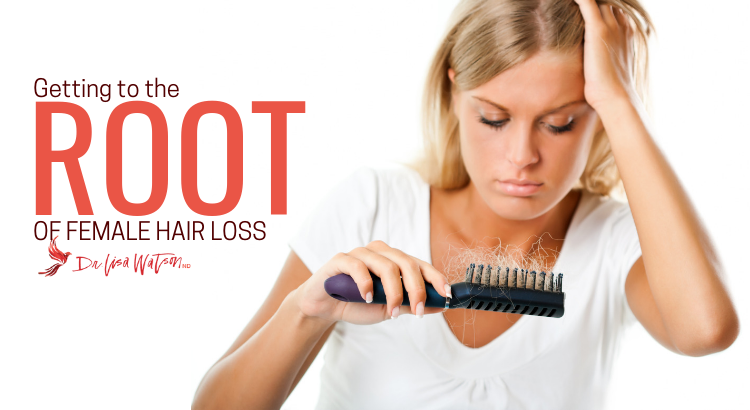
Hair loss is a condition affecting many adults – both men and women. Women are more likely to question why they are experiencing hair loss and may be more negatively affected by the hair loss than men. Women with hair loss report lower self esteem and often have higher levels of fear, stress, depression and anxiety.
Conventional medicine is often dismissive of female hair loss. The hair loss is most often not severe alopecia (the medical term for hair loss) and it is often diffuse (scattered over the scalp).
So why are women in their 20s, 30s, and 40s experiencing hair loss? There are a number of potential causes. By addressing the root cause of the hair loss, many women are able to stop the hair loss and in some instances, reverse it.
Aging
Unfortunately, hair loss is a normal part of aging. By the age of 40, the rate of hair growth slows down. New hairs are not replaced as quickly as old ones are lost. This age-related hair loss affects both men and women. In men the hair loss can be more prominent due to the effects of androgens (male sex hormones – such as testosterone).
Androgens
Androgens can contribute to hair loss in women just like in men. It has been known since the time of Hippocrates that male sex hormones (androgens) contribute to hair loss. This androgen-related hair loss is very common in women. A report published in the Clinical Dermatology journal states that it affects approximately 30% of women before age 50. When it occurs in women it is often referred to as “female pattern hair loss”.
There are a number of reasons why a woman may be affected by androgen-related hair loss. Genetics, excess androgens, insulin resistance, diabetes, polycystic ovarian syndrome, and low antioxidant status are all associated with female pattern hair loss.
Drug-Induced Hair Loss
A long list of pharmaceutical drugs can cause hair loss. Some of the most common ones are:
-

Many common medications can contribute to female hair loss Antibiotics
- Anticoagulants (Coumadin, heparin)
- Antidepressants (Prozac, lithium)
- Antiepileptics (Valproic acid, Dilantin)
- Cardiovascular drugs (ACE inhibitors, beta-blockers)
- Chemotherapy drugs
- Endocrine drugs (Clomid, danazol)
- Gout medications (Colchicine, allopurinol)
- Lipid-lowering drugs
- Non-steroidal anti-inflammatory drugs (Ibuprofen, naproxen)
- Ulcer medications (Zantac, tagamet)
When possible, natural alternatives to these drugs should be considered if hair loss is occurring.
Nutritional Deficiencies
A deficiency of almost any essential nutrient can lead to hair loss. A Naturopathic Doctor can assess your overall nutrient status, but there are a few signs you can look for at home.
Zinc – white lines on the nail can indicate poor wound healing, a common sign of low zinc levels.
Vitamin A – bumps on the back of the arms (called hyperkeratosis) is a common sign of vitamin A deficiency.
Essential Fatty Acids – dry skin on the elbows and other parts of the body is a common sign of low essential fatty acid levels.
Another nutrient deficiencies that may lead to hair loss is iron. A simple blood test is needed to determine iron levels. Your Naturopathic Doctor can help you interpret this test – many labs have normal ranges that include low iron levels that should be corrected with iron supplements.
If you are deficient in any of these nutrients a test of hydrochloric acid (stomach acid) should be considered to determine if you are not absorbing nutrients properly from your diet.
Hypothyroidism
Hair loss is one of the first features noticed by most women with hypothyroidism. 10 to 20% of the adult population has mild to severe hypothyroidism. A blood test can be done to determine if hypothyroidism is causing your female hair loss.
Celiac Disease and Gluten Intolerance
 Celiac disease is a medical condition where gluten (a protein found in wheat, barley, and rye grains) damages the small intestines and causes systemic symptoms by cross-reacting antibodies that attack various cells in the body, including hair follicles. The hair loss with celiac disease is often complete – a condition known as alopecia areata.
Celiac disease is a medical condition where gluten (a protein found in wheat, barley, and rye grains) damages the small intestines and causes systemic symptoms by cross-reacting antibodies that attack various cells in the body, including hair follicles. The hair loss with celiac disease is often complete – a condition known as alopecia areata.
In people with gluten intolerance, the condition may manifest as hair loss (not complete) rather than digestive symptoms (which are a predominant feature of celiac disease).
Consider being tested for celiac disease if you have any of the following symptoms:
- Bulk, pale, frothy, foul-smelling bowel movements
- Weight loss
- Signs of multiple vitamin and mineral deficiencies
A gluten-free diet will virtually eliminate symptoms in people with celiac disease. A trial elimination of all gluten containing foods is recommended for anyone with hair loss to determine if gluten sensitivity is a cause.
Treatment of Hair Loss in Women
One of the central philosophies of Naturopathic Medicine is to treat the cause. The treatment for female hair loss depends on the underlying cause of the hair loss.
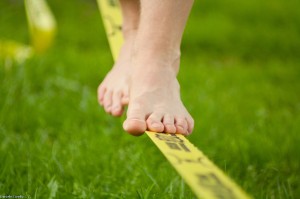
Treatment of Androgen-Related Hair Loss in Women
- Address underlying causes of androgen excess
- Improve blood glucose regulation – low glycemic index diet, blood glucose normalizing supplements (such as glucomannan, fenugreek, or bitter melon), and regular exercise
- Increase antioxidant intake – vitamin C, vitamin E, selenium, green tea
- Saw palmetto extract – reduces the formation of dihydrotestosterone (DHT) a more potent form of testosterone that is often elevated in male and female pattern hair loss. Works in a similar manner to Propecia (finasteride) – a prescription drug often used in female hair loss.
Treatment of Nutrient Deficiency-Related Hair Loss in Women
- Test hydrochloric acid levels to ensure nutrients from food are being absorbed and supplement when necessary
- A high-potency multivitamin and mineral formula (with iron when indicated)
- Flaxseed or fish oil daily as a source of essential omega-3 fatty acids
Hair loss in women is a concern that should be taken seriously. Although some hair loss naturally occurs with aging there may be another underlying cause of hair loss. Consult with your Naturopathic Doctor if hair loss is a concern for you. There is help available.
Disclaimer
The advice provided in this article is for informational purposes only. It is meant to augment and not replace consultation with a licensed health care provider. Consultation with a Naturopathic Doctor or other primary care provider is recommended for anyone suffering from a health problem.



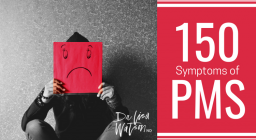
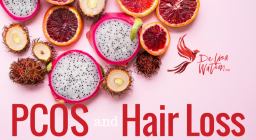

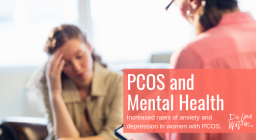


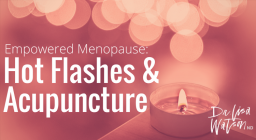
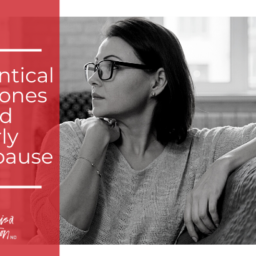
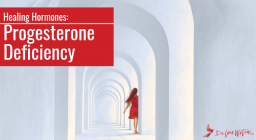
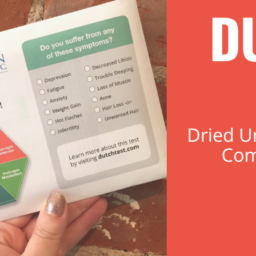
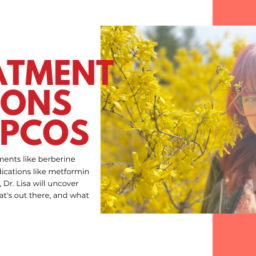
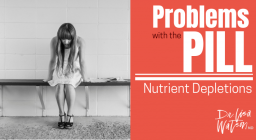

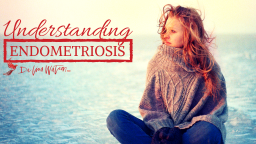
[…] This post was mentioned on Twitter by Masina Wright ND, Lisa Watson ND. Lisa Watson ND said: Getting to the Root of Female Hair Loss – Natural Treatment Options http://bit.ly/d6Kwo1 […]
I like your article
Really hepful article
Hello,
Could you recommend someone who can help me with my hair problem in the Pennsylvania area–it can be a nearby state if need be.
Contact the Pennsylvania Association of Naturopathic Physicians – they’ll be able to help you find an ND who is well versed in hair loss.
http://www.panp.org/
Might you be able to refer me to professional hair help in NYC?
Your best option is to contact the American Association of Naturopathic Physicians and find a Naturopathic Doctor familiar with hair loss in your city. Good luck! ~Lisa
Very informative article Dr. Lisa. Over the past 4 months my hair has been shedding at a frightening rate. From reading this and many other articles I believe there could be several reasons for this: I am almost 50, went off the birth control pill 5 months ago, have lost 25 lbs since January by going completely wheat free and lost my job in July. Hair loss is really stressing me out and I’m afraid it won’t come back! I was taking 25 mcg Vitamin D, along with 1000 mcg B12 (which I was low in and Dr. recommended), 25 mcg Vitamin D and Omega 3 Complete. After the shedding started I added 1000 mg Maca, then 3000 mcg Biotin, then added 50 mg zinc and now have now included 320 mg Saw Palmetto. I started using Nioxin Shampoo about a week ago as well. Am I overdoing it with vitamins, or using the wrong ones? Sorry for the long message but any assistance would be very appreciated
This article condenses and summarizes my many months of research, and has assured me I’m on the right course of action (helping to alleviate the anxiety and stress I feel as my hair becomes thinner and thinner). I hope to see re-growth begin as I endeavor on a wheat/gluten free diet for the next few months along with the other recommendations listed).
Thanks for reaching out Carol. Supplements really need to be individualized to have any impact on your health. Talk to someone in your area who can help you understand your personal imbalances and assist you in correcting them. You may or may not need hormone balancers like the Saw Palmetto. Also make sure your iron levels are optimal – this is one of the most common causes of hair loss in women and is often overlooked. Be well! ~Lisa
Dr. Watson
Will you please recommend a doctor in the Northern Virginia area?
Thank you!
I was curious if gluten sensitivity could somehow relate to hair loss/thinning in women and I see you do mention it. I am 58 and had noticed thinning and slight receding of my hairline for several years now. Have improved my diet a lot the last three years due to health issues but the biggest change is removal of grains a year ago. Notice definite changes in hair thickness and hair health . It’s amazing. I imagine it’s due to a combination of diet/lifestyle changes but seems to have begun for me awhile after the removal of gluten/grains.
You can find a qualified Naturopathic Doctor in your area by searching on the American Association of Naturopathic Physicians website at http://www.naturopathic.org/
~Lisa
Is there hope for me at 66yrs old? I’m told no I’m getting more depressed
I always feel there is hope. If we can understand why you are losing your hair, it can, in many cases, be stopped. I understand it is a very distressing condition to deal with – find a naturopath in your area and get to the root of the issue.
~Lisa
Hi Dr. Lisa,
I live in the Mississauga area and am seeking a naturopath who is well-versed in hair loss. I went to see a naturopath about hair loss and chronic fatigue…but she doesn’t seem interested in helping me with hair loss – or simply doesn’t know enough to help.
Can you recommend anyone please? And I also prefer a female doctor.
Thanks,
Sue
Hi Sue,
I have patients travel from Mississauga to my downtown clinic for female hair loss. If you are unable to make it to Toronto you can find a great ND by searching on the OAND website at http://www.oand.org
Yours in Health, Lisa
My hair has been falling out for over 6 years, I just turned 40. I have been dismissed by so many Drs, including 4 dermatologists! I keep getting told it just happens, deal with it! I wish holistic Medicine was an option for insurance. I am going to try gluten free and see if there is any changes! I am ok if I never see a thick head of hair again, the bald spots are upsetting
I find that one of the most frustrating issues with hair loss is the lack of adequate laboratory testing to identify the underlying cause. Try working with your MD to have a more complete panel done – iron, thyroid, inflammatory markers, autoimmune markers. Something is causing your hair loss – once you identify it, you can overcome it. ~Dr. Lisa